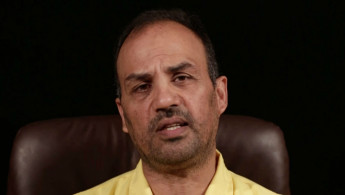Baghdadi aide revealed how 'caliph' held secret meetings in vegetable trucks
The breakthrough came in February 2018, when the aide disclosed how Baghdadi had evaded capture, according to two Iraqi security officials who spoke to the London-based news agency.
The aide, identified as Ismael al-Ethawi, was arrested by Turkish authorities in the summer of 2018 and later handed over to Iraqi authorities.
"Ethawi gave valuable information which helped the Iraqi multi-security agencies team complete the missing pieces of the puzzle of Baghdadi's movements and places he used to hide," one of the Iraqi security officials was quoted as saying.
"Ethawi gave us details on five men, including him, whom were meeting Baghdadi inside Syria and the different locations they used," he added.
Ethawi, a PhD doctor in Islamic Sciences, was reportedly one of Baghdadi's top five aides, having first forrayed into militant Islamist extremism when he join Al-Qaeda in 2006.
Two years later, Ethawi was arrested by US forces in Iraq and jailed for four years, according to the Reuters sources.
|
||
Ethwawi was reportedly tasked with delivering religious instructions and selecting commanders for the militant group.
His centrality to the group meant that once he was in custody, intelligence agents were able to use a mobile phone app on Ethawi's device to lure at least four senior commanders of IS into a trap.
The intelligence provided through Ethawi eventually allowed Iraqi sources to close in on Baghdadi.
"They gave us all the locations where they were meeting with Baghdadi inside Syria and we decided to coordinate with the CIA to deploy more sources inside these areas," one of the Reuters sources said.
"In mid-2019 we managed to locate Idlib as the place where Baghdadi was moving from village to village with his family and three close aides," he added.
Claiming credit
In the aftermath of Baghdadi's death, several of Washington's allies in the Middle East have rushed to claim credit for their alleged roles in the militant leader's capture and death.
Turkey's foreign minister on Monday emphasised to reporters Ankara's intelligence cooperation with the US.
Read more: Has this man replaced Baghdadi as IS leader?
"Turkey and our US counterparts shared information, exchanged opinions before the operation to kill Daesh leader started. That's why Trump thanked Turkey in his speech," Foreign Minister Mevlut Cavusoglu told a news conference.
Just a day earlier, Syria's top Kurdish commander hailed the "historic operation" and claimed cooperation between Washington and the Kurdish-led Syrian Democratic Forces helped facilitate the military action.
Mazloum Abdi, head of the SDF - the US's main local ally in years of battles against the Islamic State group in Syria - said the operation was the result of "joint intelligence work".
Washington has allied with both Turkey and the Kurds in Syria, however Ankara considers the Kurdish fighters to be "terrorists" and has in recent weeks launched a cross-border operation to drive them away from the Turkey-Syria border.
Follow us on Twitter and Instagram to stay connected





 Follow the Middle East's top stories in English at The New Arab on Google News
Follow the Middle East's top stories in English at The New Arab on Google News
![Netanyahu furiously denounced the ICC [Getty]](/sites/default/files/styles/image_330x185/public/2024-11/GettyImages-2169352575.jpg?h=199d8c1f&itok=-vRiruf5)
![Both Hamas and the Palestinian Authority welcomed the ICC arrest warrants [Getty]](/sites/default/files/styles/image_330x185/public/2024-11/GettyImages-2178351173.jpg?h=199d8c1f&itok=TV858iVg)
